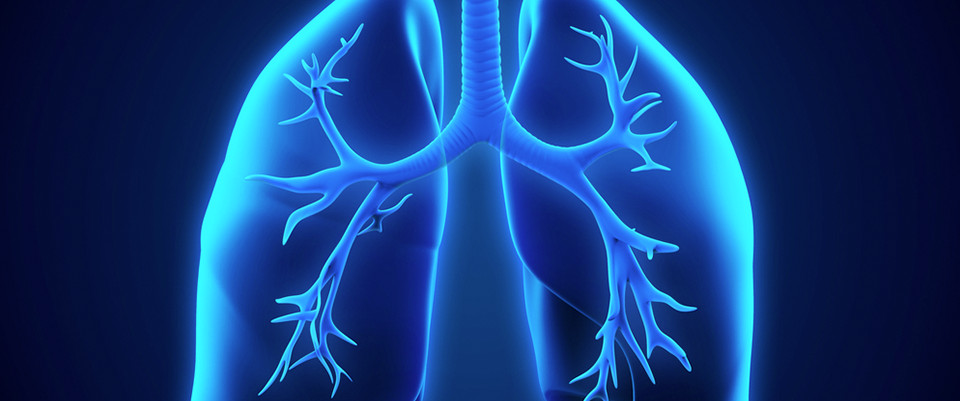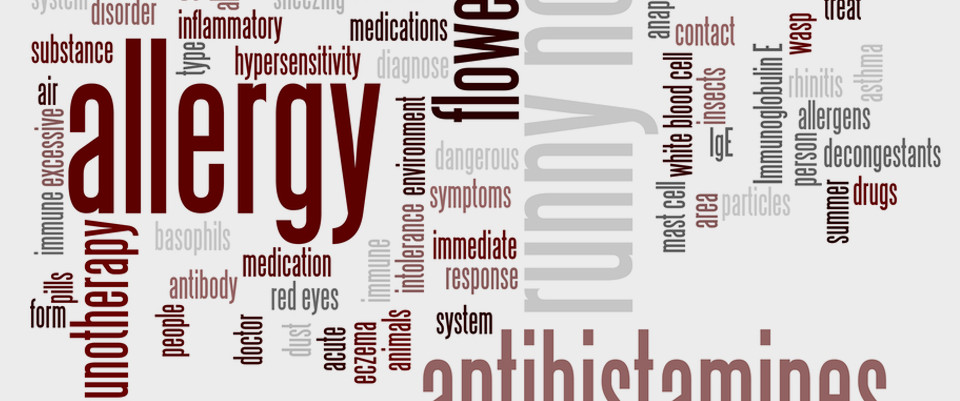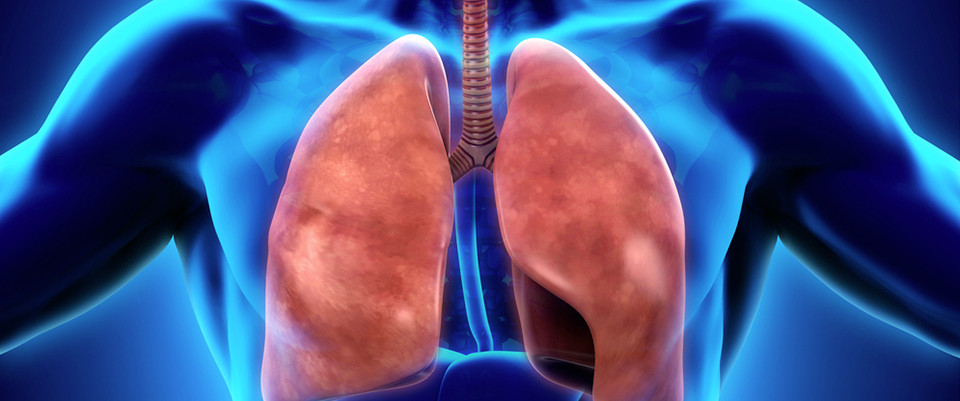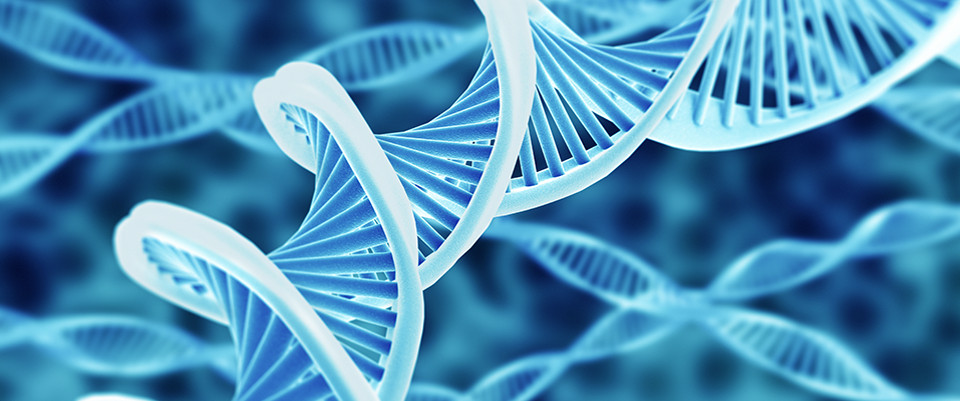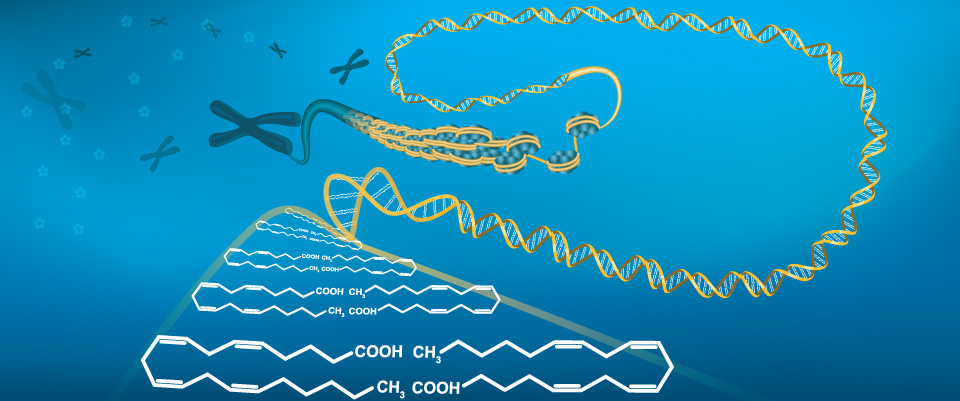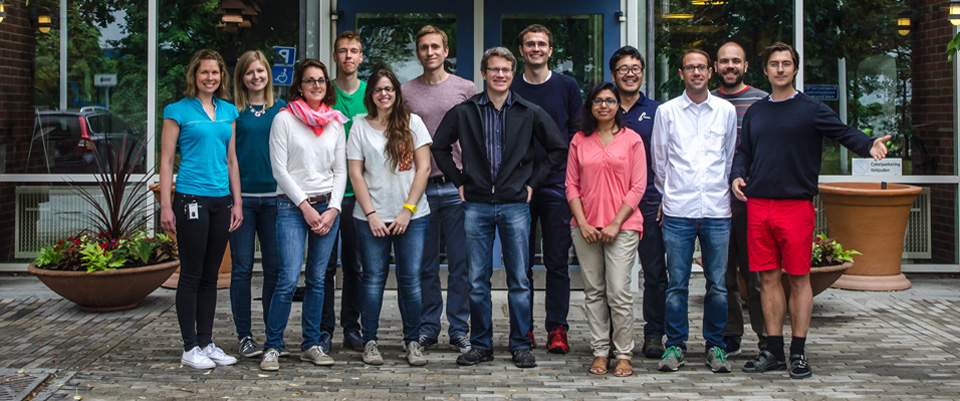KI News
External inquiry finds Paolo Macchiarini guilty of misconduct
A statement issued by the expert group for misconduct at the Central Ethical Review Board (CEPN) finds Paolo Macchiarini guilty of scientific misconduct.
“It’s liberating to have received the CEPN’s unambiguous confirmation that Paolo Macchiarini was guilty of scientific misconduct. It means we can now press on with the work we’ve begun, getting to grips with flawed internal procedures and ensuring quality and strict compliance. We apologise again to the whistleblowers for KI’s incorrect handling of their reports,” says Karin Dahlman-Wright, Acting Vice-Chancellor at Karolinska Institutet.
Read more about the Macchiarini case.
KI board orders plan of action from vice-chancellor
The Karolinska Institutet board has tasked the vice-chancellor with drafting a plan of action for how the university is to remedy all the serious failings identified by the Heckscher report.
“KI has to change, and must do so quite radically in places. After what’s happened over the past six months, the university’s key drivers are showing an uncommonly high willingness to change, “ says departing KI chairperson Lars Leijonborg.
The plan is to centre heavily on Heckscher’s report as well as on the internal audit of the department where Paolo Macchiarini was employed. It will be presented at a board meeting scheduled for 10 October.
“Even though two members have tendered their resignation and the government announced that others will be replaced, the board continues to operate in its former configuration until its new members have been appointed,” adds Leijonborg.
Karolinska Institutet and the Macchiarini case. Summary in English and Swedish.
ERC Starting Grants to KI researchers Magda Bienko and Simon Elsässer
Two KI researchers have received Starting Grants from the European Research Council, ERC, to start their independent research careers. The funding per grant is up to 1.5 million Euro for 5 years and targets young promising researchers.
Magda Bienko is assistant professor at the Department of Medical Biochemistry and Biophysics at Karolinska Institutet and affiliated to SciLifeLab. Her research interest lies in chromosome organization and its influence on gene expression. She combines mathematical modelling and advanced gene analysis to cast light on how two meters of DNA can fit in the microscopic volume of a cell’s nucleus.
Simon Elsässer is assistant professor at the Department of Medical Biochemistry and Biophysics at Karolinska Institutet and affiliated to SciLifeLab. He focuses on applying new synthetic and chemical biology methods to understand the structure and function of chromatin, a complex of DNA- and protein in the cell nucleus.
Read more about ERC Starting Grants.
Read more in a press release from ERC.
Read more about Magda Bienkos research.
Read more about Simon Elsässers research.
International research project receives Australia’s science Oscar
The international “FANTOM 5” project, in which five researchers from KI are involved, has been awarded a Eureka Prize – also known as Australia’s “Science Oscar” – in the International Scientific Collaboration category.
The FANTOM5 project has been awarded the prize for its international collaboration on the production of a genome atlas, which makes a vital contribution to the understanding of different genetic diseases and the development of therapeutic methods.
FANTOM5 was started by a group in RIKEN, Japan, in 2000, since when it has grown to encompass 260 scientists from 20 countries. One of them is Carsten Daub, at the Department of Biosciences and Nutrition, who, amongst his other achievements, has helped to identify “enhancers”, or gene regulating elements, which determine which genes are to be activated in a specific cell type. He also sits on the project’s steering committee.
“The key to success with such a large collaborative venture is having very personal contact with others. Many of us have been on board for a long time, and worked together for years,” says Dr Daub.
The project involves all participants sharing their data so that the others can build on the results before publication in a scientific journal.
“This means you need to really trust each other,” he says. “And if you trust people, you get a whole lot back. You can’t be afraid that someone will run off with your results.”
One problem with a collaborative project of this magnitude is publication inertia.
“The first paper, a large, central one, usually takes a long time to get ready for publication. The waiting can be frustrating for everyone else,” he says.
He is now looking forward to getting started on the next project, FANTOM6.
Also participating from Karolinska Institutet are Juha Kere, Karl Ekwall, Andreas Lennartsson and Peter Arner.
The Australian Museum Eureka Prizes are Australia’s most prestigious scientific accolade, and are being awarded for the 27th year in succession.
Text: Maja Lundbäck
Heckscher: astonished by what the inquiry uncovered
Sten Heckscher at the press conference on 5 September.
The external inquiry into the Macchiarini case released on Monday condemns Karolinska Institutet for its nonchalance towards rules and irresponsible attitudes towards formal procedures. Already at the time of visiting professor Paolo Macchiarini’s recruitment, there were signals that Karolinska Institutet ought to have heeded, said investigator Sten Heckscher as he presented the nearly 200-page report.
Sten Heckscher, former president and justice of the Supreme Administrative Court of Sweden and under-secretary of state in the Ministry of Justice, was astonished by much of what the inquiry uncovered.
“They ignored statements made in connection with Macchiarini’s recruitment, and there was a stunning lack of interest in learning more about his work before extending his contract.”
Spontaneous references were received by KI from other European countries indicating that Macchiarini had provided incorrect information in his CV, questionable data in his publications, that he lacked judgement and had obvious difficulties cooperating with others.
“I’ve never seen such negative references. It’s quite remarkable that the vice-chancellor didn’t have the matter probed more extensively. There is no guarantee that this would have automatically barred Macchiarini from being employed, but more careful consideration would have been given to the matter, and I doubt that he would have been hired.”
KI can be held partially accountable for the operations
While Karolinska University Hospital had formal responsibility for the surgical transplantation of the synthetic tracheae, Karolinska Institutet is not without blame, said Mr Heckscher.
“The university cites Macchiarini’s operations as successes. Specific mention is made of them in press releases and research applications. The operations are seen as closely linked to the research being conducted there.”
KI could not have prevented the operations, but could have demanded proper compliance with the regulations, the investigators state.
“What KI ought to have done was make sure that the rules were being obeyed at the time of the second and third operations.”
At no time ahead of Macchiarini’s 2013 contract extension did KI question whether he should remain. Instead, the discussions dealt merely with the terms of his contract.
“We’re highly critical about this particular point. No evaluation was made, even that autumn, after Macchiarini was placed under house arrest in Italy for reasons that, although unclear, are related to healthcare.”
Textbook example of poor leadership
The affair provides textbook examples of poor leadership and a broken delegation of authority, said Mr Heckscher. Both vice-chancellors were inappropriately involved in the case, including Macchiarini’s recruitment.
“Emails were sent that made it clear to a head of department exactly what was to be achieved, while telling her that she was free to decide for herself.”
Regarding Macchiarini’s research, there were flaws in the documentation about what had actually been done.
“This is a critical question for a university that aims to be scrupulous.”
Macchiarini’s extra-occupational activities outside of Sweden were also overlooked.
KI should have reacted to his sporadic presence
Another circumstance that should have caused the university to react was Macchiarini’s extremely sporadic presence,” said Mr Heckscher.
Mr Heckscher and the other two investigators, Carl Gahmberg, professor of biochemistry at Helsinki University, and Ingrid Carlberg, journalist and author, also address structural matters that could have influenced developments. On this count they criticise Karolinska Institutet and its nonchalance towards the rules governing public authorities, an attitude that they believe contributed to the problems described.
The investigators also object to what they regard as the primitive reaction of demanding the resignation of those responsible.
“It’s important to identify where the responsibility lies, but then one also has to ask oneself if someone’s legitimacy is so undermined that they have to quit, or if it’s better to have them remain in office with their newfound knowledge and experience.”
In light of this, Mr Heckscher regrets KI board chairperson Lars Leijonborg’s decision to resign his post.
“He would have been well positioned to give KI’s upcoming work a flying start, but now the University Board is leaderless at the same time as they are recruiting a new vice-chancellor.”
The recommendations for the board include reviewing the rules, procedures and responsibilities in a number of areas.
Mr Heckscher believes that KI will manage to do this and to rebuild its reputation.
“But it’s imperative that the board, vice-chancellor and university director demonstrate a joint commitment to addressing these issues. The view of the Professors Collegium is also important given the strong collegial tradition. Those who are not formally responsible must also act.”
Karolinska Institutet’s response
During an ensuing press conference, departing chairperson Lars Leijonborg commented on the inquiry. He was also asked about his decision to resign:
“There’s so much that has to be done now that the time is ripe for someone else to take over. This day has been something of a watershed for us. We’ve now got the Heckscher group’s explanation of what happened and a good number of recommendations, so I feel that this is an appropriate time for a transition,” he said.
Karin Dahlman-Wright, Acting Vice-Chancellor of Karolinska Institutet, agreed that KI has a great deal of work ahead.
“We will protect everything that’s good and healthy, but we clearly need to make greater progress when it comes to clarifying each employee’s importance and responsibility, and we must never compromise on ethical principles. The University Board will ultimately own this process, but all of KI must be deeply involved,” she said.
Text: Ann Patmalnieks
Foto: Gunnar Ask
Read more about the Macchiarini case
Karolinska Institutet responds to Heckscher report on the Macchiarini case
Commentary: The findings of the inquiry into the Macchiarini case were presented today to Karolinska Institutet’s board chairman Lars Leijonborg. Commissioned by KI’s University Board, the inquiry was led by former Administrative Supreme Court President Sten Heckscher. The report severely criticises KI’s handling of the case – from the recruitment of Paolo Macchiarini in 2009 to the monitoring of his activities and the management of the scientific misconduct allegations against him.
Their investigations also prompted the authors to criticise the management culture at KI.
Lars Leijonborg and KI’s Acting Vice-Chancellor Karin Dahlman-Wright commented on the report at a press conference.
Leijonborg first thanked the four authors of the report and also extended his thanks to the documentary filmmaker Bosse Lindquist: “It is clear that his films were pivotal in bringing to light important shortcomings at both Karolinska University Hospital and Karolinska Institutet.”
“Those who have been hit hardest by this tragic affair are several patients and their families, “ he continued. “Naturally we are deeply distressed that mistakes at KI have caused suffering and premature death, and we would like to express our very deepest regrets and apologies.”
Leijonborg said that the report paints a clear picture of what happened concerning Paolo Macchiarini since 2009, and commented: “A culture where it is acceptable to occasionally ignore laws, rules, ethics and morals has to change. Based on the Heckscher committee’s recommendations, work will now begin to minimise the risk of anything similar happening again.”
Karin Dahlman-Wright, Acting Vice-Chancellor of Karolinska Institutet, commented: “KI takes the criticisms that have been made very seriously. This is a case in which a long chain of poor and absent decisions enabled a visiting professor to contravene the rules and ethical principles that apply to KI’s activities. Macchiarini himself must bear considerable responsibility in all of this, but it is also very clear that KI failed to monitor compliance with existing rules and procedures.”
She noted that KI has already started to address the failings that emerged following the incident:
Rules on extra-occupational activities are being tightened
The recruitment process, including the verification of CVs and references, is being strengthened
The process for dealing with suspected research fraud has been revised to ensure that cases are handled quickly, transparently and lawfully
Work on developing and supporting an open culture and academic leadership has begun
Use of a whistle-blower function has been encouraged
A special review of the department where Macchiarini was employed has been conducted
This work is being carried out in order to build an internal culture that is open and transparent and clarifies each employee’s roles and responsibilities.
“It is now up to us to show that KI is so much more than just the Macchiarini case,” added Dahlman-Wright. “We have 6,000 students who are in great demand throughout society, not least in the health sector. We also have more than 6,000 research, teaching and other staff who go to work each day with the aim of improving human health.”
The Macchiarini case: The external inquiry into Karolinska Institutet criticises KI on several counts
On Monday, the external investigators presented the results of their inquiry into Karolinska Institutet’s handling of visiting professor Paolo Macchiarini. Their report criticises KI on several counts, including that Macchiarini’s recruitment in 2010 and the extension of his contract in 2013 were pushed through improperly. The report also found that KI cannot be completely absolved of responsibility for the synthetic trachea transplantations performed at Karolinska University Hospital.
The external investigation was conducted by Sten Heckscher, Ingrid Carlberg and Carl Gahmberg, and covers the initial correspondence between KI and Macchiarini in autumn 2009 through 4 February 2016. Matters under scrutiny include the recruitment of Macchiarini in 2010, the extensions of his contract in 2013 and 2015, the division of responsibilities between KI and Karolinska University Hospital regarding the controversial transplantations, and KI’s handling of the scientific misconduct allegations levelled against Macchiarini.
Their report concludes that Karolinska University Hospital bears responsibility for the transplantations of synthetic tracheae performed there. However, the investigators also found that Karolinska Institutet cannot be completely absolved of responsibility for these operations. For example, the university cited the transplantations as research successes in its evaluations of research funding utilization. Furthermore, individuals from KI took part in discussions preceding and following the operations. Consequently it was also KI’s responsibility to ensure that they were performed in accordance with relevant rules and regulations.
Moreover, Karolinska Institutet is accused of nonchalance in the application of the law, including the Freedom of the Press Act and the Administrative Procedure Act, an attitude that caused failings in Macchiarini’s recruitment and the extensions of his contract. The report also criticises the manner in which the allegations of scientific misconduct against Macchiarini were managed. For example, decisions were not justified in the way provided by the Administrative Procedure Act.
The investigators proceed to discuss how responsibility should be divided and how the consequences of failing to act upon this responsibility should be assessed. The report concludes with a discussion on structural issues that could have contributed to the mistakes made.
Read a summary in English.
Read more about the Macchiarini case.
About the investigators
Sten Heckscher is a former president and justice of the Supreme Administrative Court of Sweden, cabinet minister, under-secretary of state and national police commissioner.
Ingrid Carlberg is an author and journalist, and honorary doctor of medicine at Uppsala University.
Carl Gahmberg is professor of biochemistry at Helsinki University.
Pia Cedermark, Justice of the Swedish Administrative Court of Appeal, served as secretary to the inquiry.
Sifo survey: Macchiarini case has damaged KI’s reputation
A survey conducted by TNS Sifo shows that Karolinska Institutet’s reputation has plummeted from 85 to 59 on a scale of 0 to 100. The reason is the Macchiarini scandal.
For the fourth year in succession, TNS Sifo has conducted an online survey of Sweden’s universities that explains their varying public reputations.
Last year (2015) Karolinska Institutet ranked fourth with 85 on the academic “reputation index”, under Chalmers University of Technology (89), the Royal College of Technology (86) and Lund University (86).
In this year’s survey Karolinska Institutet has fallen to 12th place with an index score of 59 as a consequence of the recent year’s controversy surrounding Paolo Macchiarini and his position of researcher at the university.
“This is extremely serious and we are not at all happy about this, but we have to acknowledge the fact and do our very utmost to improve the situation,” says Karolinska Institutet’s Acting Vice-Chancellor Karin Dahlman-Wright to Swedish Television.
The damaging factor is the widespread denigration of the university management’s ethical and moral credentials. Its conduct when the Macchiarini case came to light and its handling of the media during the crisis also come under heavy fire.
According to Sifo survey manager Toivo Sjörén, Karolinska Institutet was saved from falling even further by the solid reputation it enjoys for its teaching and other research. According to the survey, the strengths of the university’s reputation are its research successes, its global ranking, its quality education and its contributions to society.
“We now have to rebuild public trust,” says Karin Dahlman-Wright. “We want to show that KI is much more than Macchiarini and how our research really contributes to the health not only of the individual but also of society at large.”
The inquiry into KI’s handling of the Macchiarini case is due to be presented on Monday 5 September along with recommendations on how it can prevent similar incidents from happening again.
Lars Leijonborg resigns as chairman of Karolinska Institutet
Lars Leijonborg resigns as chairman of Karolinska Institutet.
Lars Leijonborg announced today that he is stepping down as chairman of the Karolinska Institutet University Board.
“Today I have informed the Minister for Higher Education and Research Helene Hellmark Knutsson that I am resigning as Chairman of the Board of Karolinska Institutet. My term ends in eight months, on 30 April, but I believe it is best that a change in board leadership takes place now during the fall,” wrote Leijonborg in a written statement.
Why pneumococci affect primarily humans
A special variant of a sugar molecule in the human nose might explain why pneumococcal infections are more common in humans than in other animals, researchers from Karolinska Institutet report in a study published in the journal Cell Host & Microbe. The discovery can help in the search for a broader vaccine able to protect against all types of pneumococci.
The bacterium S. pneumoniae or the pneumococcus exists naturally in the noses of children and adults, but is also one of the most common causes of infectious diseases in the world, with meningitis and pneumonia being amongst the most severe. Pneumococci cause more severe infections in humans than in other mammals, something that has hitherto remained a mystery.
Nasal mucus contains a special sugar molecule – sialic acid – which pneumococci use as a source of energy for its growth and survival. With the help of an enzyme this acid is released by the bacteria and taken up into the bacterial cells for conversion to energy. In this present study, the researchers show that the sialic acid found in humans make pneumococci able to both grow better and become more resistant to the immune defence than the variant commonly found in other mammals.
A broader vaccine in sight
Using mice with a mutation that causes them to produce the human form of the sugar, the researchers found that these mice were more prone to acquire a severe pneumococcal infection than the controls.
“We found that the human variant of the sugar molecule caused the bacteria to produce more of the enzyme that releases the sugar that pneumococci need as a source of energy,” says principal investigator Professor Birgitta Henriques-Normark at the Department of Microbiology, Tumour and Cell Biology. “This can enhance the growth of pneumococci in the human mucosa. Moreover, the increased uptake of sialic acid by the bacteria triggers their production of a protein [htrA] that counters the oxidative stress that the body’s immune system uses to fight the infection.”
The finding gives the researchers a clearer idea of how and why pneumococci can cause such severe infections in humans. This knowledge makes scientists better placed to develop more effective vaccines able to protect against all types of pathogenic pneumococci in humans, something current vaccines cannot do.
The study was a collaboration between researchers from Karolinska Institutet and the University of California and was financed with grants from the Knut and Alice Wallenberg Foundation, the Swedish Research Council, the Swedish Foundation for Strategic Research, ALF funding in collaboration with the Stockholm County Council, and the NIH.
Text: Mårten Göthlin (in translation from Swedish)
Publication
Streptococcus pneumoniae senses a human-like sialic acid profile via the response regulator CiaR
Karina Hentrich, Jonas Lofling, Anuj Pathak, Victor Nizet, Ajit Varki, Birgitta Henriques-Normark
Cell Host & Microbe, online 1 September 2016, DOI: http://dx.doi.org/10.1016/j.chom.2016.07.019
Karolinska Institutet comments on Asplund’s “Macchiarini case” inquiry
Commentary: On 31 August, Kjell Asplund presented results of the inquiry into circumstances surrounding the trachea operations performed by Paolo Macchiarini on three patients at Karolinska University Hospital. The inquiry is heavily critical not only of the hospital, but also of Karolinska Institutet.
Two of the conclusions drawn by Asplund are that the operations constituted acts of research rather than healthcare, and that Karolinska Institutet was proactive in the recruitment of Macchiarini, who was initially employed at both institutions.
“It would be extremely regrettable if Karolinska Institutet had exerted any kind of pressure in the recruitment of Paolo Macchiarini,” says Karin Dahlman-Wright, Acting Vice-Chancellor of KI. “That kind of thing must naturally not happen. It is important to raise these issues, and I’m grateful that Kjell Asplund and his investigation also covered KI’s responsibility so that we can take the appropriate steps to ensure this doesn’t happen again.”
Dahlman-Wright says that the investigation indicates a need for a clearer division of responsibilities in joint projects, including recruitments. Asplund’s report also shows that KI wanted to retain Macchiarini, while the hospital wanted to terminate his contract. Macchiarini left the hospital in 2013, but remained a visiting professor and researcher at KI until 2016.
The investigation also concludes that the operations should be considered clinical research and not healthcare on the basis of a so-called “vital indication” (i.e. in the interest of saving patients’ lives), as both the hospital and the former KI management had maintained. This means that the proposed operations should have undergone an ethical review.
According to Asplund, it is difficult to ascertain whether the three patients’ lives were in danger or not and whether the operations shortened or prolonged their lives.
“It cannot be ruled out that the operations led to premature deaths. We take Karolinska Institutet researchers’ involvement in this matter very seriously and deeply regret the unnecessary suffering caused to the patients,” says Professor Dahlman-Wright. “We sincerely apologise to them and their families and pledge to do all we can to prevent this from ever happening again.”
Inquiry into tracheal operations at Karolinska University Hospital presented
Today Professor Emeritus Kjell Asplund presented his external, independent investigation of Paolo Macchiarini’s transplantations of synthetic tracheae at Karolinska University Hospital between 2011 and 2013.
Kjell Asplund, who is chair of the Swedish National Council on Medical Ethics (SMER) and former director general of the National Board of Health and Welfare, was tasked in February 2016 with conducting the inquiry by Melvin Samsom, director of Karolinska University Hospital.
A number of investigations have been initiated due to the Macchiarini case, some with a direct focus on Macchiarini and his activities. The Karolinska University Hospital and Karolinska Institutet have both appointed external investigators.
External investigation concerning Karolinska Institutet
On Monday 5 September Sten Heckscher will be presenting an external independent investigation into Karolinska Institutet’s handling of the Macchiarini case which was conducted on behalf of the University Board. The investigators’ task has been to examine events and circumstances at Karolinska Institutet since Paolo Macchiarini was recruited as visiting professor in 2010 up to the present.
Brian Hodges is awarded the KI Prize for Research in Medical Education
Brian Hodges, Professor at the University of Toronto, Canada, is awarded the 2016 Karolinska Institutet Prize for Research in Medical Education. His research has led to changes in educational practice, both scientific and practical, in the training of health professionals around the world.
“This year’s prize winner was an easy choice, as Professor Hodges’ research is of such outstanding significance, quality and originality. It has led to changes in practice and has had an impact on medical education. Professor Hodges has embraced both quantitative and best-practice qualitative methodologies. The outcomes of the research are well recognised as a substantial contribution to the medical education literature,” says Professor Sari Ponzer, Chair of the Prize Committee.
Brian Hodges, Professor at the Faculty of Medicine and Ontario Institute for Studies in Education at the University of Toronto, Canada, has since the early 1990s advocated a closer examination of the role that medical education plays in society. His research focuses on the nature of competence, how it has been constructed in different historical periods, across different countries and cultures, and how it is assessed using a range of assessment tools and systems. He has successfully advocated including simulations and assessment of mental health and communication skills in examinations for medical students and residents and for other health professionals. This is now standard practice in his native Canada and many other countries.
Simulation is an important part of education
“When I was in medical school, all exams were written or oral; there were few simulations as part of the examination process. Today, the use of simulated patients is widespread internationally, and has changed the way that medical students are assessed. In a perfect world, health professionals would go back every year of their career to engage in challenging simulations to test their clinical and communication skills. That’s what I’m currently working on”, says Professor Hodges.
“Our research team was the first in the world to experiment with the validity of complex communication and mental health simulations. I’m proud that these types of simulations are now part of the medical examination process, in combination with physical assessment. This is important, as we often need to deal with patients or family members who are anxious or emotionally distressed in a hospital environment”.
Receives the award in October
Professor Hodges will receive the award and a prize amount of €50,000 at a ceremony in Stockholm, Sweden, on 13 October.
This international prize is awarded for outstanding research in medical education. The purpose of the prize is to recognise and stimulate high-quality research in the field and to promote long-term improvements of educational practices in medical training. "Medical" includes all education and training for any health science profession. The prize is made possible through financial support from the Gunnar Höglund and Anna-Stina Malmborg Foundation. It is currently awarded every second year.
Read more about Brian Hodges and the prize
Special nerve cells cause goose bumps and nipple erection
The sympathetic nerve system has long been thought to respond the same regardless of the physical or emotional stimulus triggering it. However, in a new study from Karolinska Institutet published in the journal Nature Neuroscience, scientists show that the system comprises different neurons that regulate specific physiological functions, such as erectile muscle control.
The sympathetic nervous system is involuntary and more or less beyond our conscious control. Its purpose is to maintain a balance of bodily functions and regulate daily activities, such as locomotion, ingestion, body temperature and the fight-or-flight response.
The system has long been considered non-specific and to produce the same response no matter what type of physical or emotional phenomena stimulate it. Earlier research has been limited to the study of certain organs or a handful of cells, and has therefore not been able to definitively demonstrate the presence of specificity in the system, whereby different cell types would have different functions.
In the present study, the researchers carried out a large-scale analysis of sympathetic nerve cells, from which they were able to demonstrate that there are many different types of sympathetic neurons and that the different types are associated with a particular functions.
Controlling the erectile muscles
“We’ve shown that the sympathetic system consists of many types of neuron that regulate specific functions in the body,” says the study’s lead author Alessandro Furlan at the Department of Medical Biochemistry and Biophysics. “For example, one thing we found was that goose bumps and nipple erection are caused by neurons that are specialised to regulate these functions by controlling the erectile muscles in these tissues.”
While the researchers expected to find that there was no one common signal controlling the maintenance of a functional balance in organs and glands, they were surprised that they could prove it by showing that sympathetic nerve cells are heterogeneous and specialised for different functions and that the organs they control are involved in their specialization.
“Now that we have the cellular and molecular information, the future promises to be very exciting when this knowledge can be used to understand how this system is formed during gestation and how the different neuron types go about controlling the body’s functions,” says study leader Patrik Ernfors, professor of tissue biology
The study was financed with grants from several bodies, including the Swedish Research Council, the Knut and Alice Wallenberg Foundation and the Swedish Cancer Society.
Publication
Visceral motor neuron diversity delineates a cellular basis for nipple- and pilo-erection muscle control
Alessandro Furlan, Gioele La Manno, Moritz Lübke, Martin Häring, Hind Abdo, Hannah Hochgerner, Jussi Kupari, Dmitry Usoskin, Matti S Airaksinen, Guillermo Oliver, Sten Linnarsson and Patrik Ernfors
Nature Neuroscience, published online 29 August 2016, doi: 10.1038/nn.4376
How a particular gene protects against psoriasis
There is currently no cure for the skin disease psoriasis. However, in a new study conducted at Karolinska Institutet and published in The Journal of Allergy and Clinical Immunology, scientists show that the miR-146a gene can be a “chronicity factor” , that mediate the resolution of inflammation and may prevent the disease from becoming chronic.
Psoriasis is a very common inflammatory skin disease that affects about three per cent of the population. It presents as a reddened, scaly patches of skin that can, in some cases, cover large areas of the body. Its pathogenesis is a combination of inherited and environmental factors. The present research project was designed to find new molecular mechanisms behind psoriasis in order to understand what causes the disease, why it does not heal and, eventually, to develop new treatments.
Inducing skin changes
The Karolinska Institutet group has previously shown that the microRNA named miR-146a exists in skin cells and has altered activity in psoriasis. To assay its role in the disease, they have now used a group of mice lacking the gene and a control group with the gene. By inducing psoriasis-like skin changes with a cream, they were able to assess the outcome clinically, microscopically and at a molecular level.
“The absence of miR-146a causes more pronounced skin inflammation, which also develops more quickly,” says Enikö Sonkoly, docent at Karolinska Institutet’s Department of Medicine, Solna. “In mice lacking miR-146a we see a slower and incomplete healing process.”
The researchers also conducted a genetic analysis of 1,546 psoriasis patients and 1,526 controls, and found that a certain variant (SNP) of miR-146a-genen protects against psoriasis. The effect is most marked in individuals lacking the most important risk gene for the disease, HLA-Cw6. In this group, the risk of disease is halved in the presence of the protective miR-146a variant.
Crucial part
The study shows that the miR-146a gene is anti-inflammatory and plays a crucial part in preventing chronicity by switching off inflammation in the skin. It also fine-tunes the response of skin cells to IL-17, a cytokine that has a key role in psoriasis, the inhibition of which is one of the most potent treatment interventions. The injection of synthetic miR-146a had a pronounced effect on the mouse model, alleviating the skin inflammation effectively.
“Our results suggest that the modulation of microRNA levels by, say, delivering synthetic microRNA into the cells, could constitute a new method of psoriasis therapy,” says Dr Sonkoly.
The study was financed with grants from the Swedish Research Council, the Swedish Psoriasis Association, Hudfonden, Karolinska Institutet, the Swedish Cancer Society, the Åke Wiberg Foundation, the Magnus Bergwall Foundation, the Royal Physiographic Society in Lund and Stockholm County Council.
Publication
MicroRNA-146a suppresses IL-17-mediated skin inflammation and is genetically associated with psoriasis
Ankit Srivastava, Pernilla Nikamo, Warangkana Lohcharoenkal, Dongqing Li, Florian Meisgen, Ning Xu Landén, Mona Ståhle, Andor Pivarcsi, Enikö Sonkoly
Journal of Allergy and Clinical Immunology, published online August 25 2016, doi: 10.1016/j.jaci.2016.07.025.
External investigation to be presented on 5 September
The external inquiry into Karolinska Institutet’s handling of the Macchiarini case is to be presented to the media on 5 September. The external investigators Sten Heckscher, Ingrid Carlberg and Carl Gahmberg appointed to conduct the inquiry will be presenting their final report.
Obesity surgery increases the risk of preterm birth
Babies of women who have undergone bariatric surgery for obesity run a higher risk of preterm birth, according to a new study from Sweden´s Karolinska Institutet published in The New England Journal of Medicine.
Obesity in pregnant women increases the risk of complications that can adversely affect the health of both mother and child. For example, there is a higher chance of preterm delivery than in women of normal weight. With the rising popularity of bariatric surgery, which leads to substantial and often permanent weight loss, the number of women receiving surgery for obesity prior to having a baby has increased dramatically in Sweden and around the world.
Increased risk
“Since obesity is associated with a higher risk of preterm delivery, we assumed that the weight-loss achieved by surgery would reduce this risk, especially as it also reduced the risk of gestational diabetes,” says research team member Olof Stephansson from Karolinska Institutet’s Department of Medicine, Solna. “Instead, we found that it increased the risk.”
Using data from the Scandinavian Obesity Surgery Registry (SOReg) and National Swedish Health Registers, the researchers found almost 2,000 babies born of post-bariatric surgery women between 2006 and 2013 and compared them with the babies of 6,500 women who had not been operated on but who had the same BMI as the first group prior to surgery.
They found that the women who had undergone surgery ran a higher risk of preterm delivery (i.e. before week 37), so that while 6.8 per cent of the control group had premature babies, the corresponding figure in the surgery group was 8.4 per cent.
“Since bariatric surgery followed by pregnancy can increase the risk of preterm birth, such women ought to be considered risk pregnancies and should receive particular care and attention from the maternity care services,” says Dr Stephansson. “This means, for instance, giving them extra ultrasound scans to check fetal growth and detailed dietary advice that includes the supplements they need after bariatric surgery. They should also be checked for any possible nutrient deficiencies other than iron.”
Positive effects
Bariatric surgery can also have positive effects on subsequent pregnancies. In earlier studies, the Dr Stephansson’s group found that surgery reduces the risk of gestational diabetes and was associated with normalised birth size. The earlier study suggested that bariatric surgery increased the risk of premature birth but the difference was not statistically significant. Since bariatric surgery has now become so popular, the researchers in the present study were able to follow a much larger group of women and thus confirm this suspected correlation between surgical intervention and preterm birth.
The study was financed by the Swedish Research Council and the National Institutes of Health, USA.
Publication
’Bariatric surgery and preterm birth’
Olof Stephansson, Kari Johansson, Ingmar Näslund and Martin Neovius
The New England Journal of Medicine, published online 25 August 2016.
Karolinska Institutet comments on critique in TV4 news report
Following a news report in TV4 August 22, Karolinska Institutet makes the following comment:
A study at Karolinska Institutet and Karolinska University Hospital, where patients with scar tissue on the vocal cords have been operated with their own stem cells, has been put on hold awaiting renewal of permits. Studies involving patients injected with endogenous mesenchymal stem cells injected into the vocal cords during surgery, has been conducted since 2011. The study has covered a total of 16 patients over a five-year-period. Permission for the study was approved in 2011, and the treatment was started in January 2012.
Karolinska University Hospital and Karolinska Institutet have had an ongoing dialogue with the relevant authorities over the years. In March 2016 the licensing responsibility was transferred from the Health and Social Care Inspectorate to the Medical Products Agency, and in conjuction with this existing permits expired. Pending a new permit, the studies have been stopped. As of August 2015, no new treatments have been started, only checks of already initiated treatments. The criticism directed at Karolinska Institutet and the researcher responsible for the study is therefore unfounded. Karolinska Institutet have asked the Medical Products Agency for a clarification.
About six percent of the population have voice disorders. A smaller group of patients have severe hoarseness or complete loss of the voice because of scarring tissue on the vocal cords. This often leads to severe communication disability, unemployment or sick leave. Currently no effective permanent treatment for these patients.
Genes responsible for risk of heart attack, stroke and related cardiometabolic diseases identified
Thousands of genes and their interactions across tissues mediating cardiometabolic diseases have been identified. The research, published in Science, is a result of a joint collaboration between the Icahn School of Medicine at Mount Sinai, Tartu University Hospital in Estonia, Karolinska Institutet and SciLifeLab in Sweden, and AstraZeneca.
The identified level of complexity and interaction among these genes also includes processes that lead to heart attack and stroke.
“By analyzing gene-expression data from multiple tissues in hundreds of patients with coronary artery disease, we were able to identify disease-causing genes that either were specific to single tissues or acted across multiple tissues in networks to cause cardiometabolic diseases,” said Johan Björkegren, MD, PhD, principal investigator of the study, Professor of Genetics and Genomic Sciences at the Icahn School of Medicine at Mount Sinai, visiting professor at University of Tartu and senior investigator at the Karolinska Institutet.
Systematic analysis
The research was done as part of the STARNET study - the first systematic analysis of RNA sequence data from blood, vascular, and metabolic tissues from patients with coronary artery disease (CAD). RNA sequences are copies of the DNA in each cell that serve as templates for protein synthesis and determine whether a tissue remains healthy or becomes diseased.
“Genome-wide association studies (GWAS) have identified thousands of DNA variants increasing risk for common diseases like CAD,” said Dr. Björkegren. “However, while GWAS was an important first line of investigations of the inheritance of CAD, in order to translate these risk markers into opportunities for new diagnostics and therapies, we must now move into a new phase of discovery and identify the genes perturbed by these DNA variants responsible for driving disease development. Unraveling disease-driving genes with their tissue-belonging, as we have started to achieve using STARNET, will also be a prerequisite for developing precision medicine with individualized diagnostics and therapies.”
STARNET was launched in 2007 by Dr. Björkegren, and Arno Ruusalepp MD, PhD, Chief Cardiac Surgeon at Tartu University Hospital in Estonia, and senior co-author on the study. Unlike similar studies, it obtained samples of several key tissues from 600 clinically well-characterized patients with CAD during coronary artery bypass surgery.
Highly informative
By using sophisticated data analysis techniques, the researchers found that the gene expression data were highly informative in identifying causal disease genes and their activity in networks for CAD, related cardiometabolic diseases as well as Alzheimer’s disease.
“One unexpected and thus potentially important finding of the study was that besides the liver, abdominal fat emerged as a key site for regulation of blood lipid levels” said Dr. Franzén, first author and computational biologist in Dr. Björkegren’s laboratory. “For example, a gene called PCSK9, which is implicated in controlling plasma levels of low-density lipoprotein (LDL) - the so-called bad cholesterol - was found to do so by acting in abdominal fat, not in the liver where blood levels of LDL are mainly regulated”.
The gene PCSK9 has lately gained substantial attention as the latest target for lipid-lowering drugs now reaching the market.
The STARNET study was supported by the University of Tartu; the Estonian Research Council; Karolinska Institutet - AstraZeneca Joint Research Program in Translational Science; Clinical Gene Networks AB (an SME of the EU-funded integrated project CVgenes@target); the Leducq transatlantic networks; CAD Genomics and Sphingonet; Torsten and Ragnar Söderberg Foundation; Knut and Alice Wallenberg Foundation; the American Heart Association; the National Institutes of Health and the Veterans Affairs.
The DNA genotyping and RNA sequencing were in part performed by the SNP&SEQ technology platform at SciLifeLab National Genomics Infrastructure in Uppsala and Stockholm supported by Swedish Research Council, Knut and Alice Wallenberg Foundation and UPPMAX. Björkegren is the founder and chairman of the company Clinical Gene Networks AB, CGN. CGN has financially contributed to the STARNET study. Schadt and Ruusalepp are members of CGN board of directors.
Björkegren, Michoel and Ruusalepp own equity in CGN and receive financial compensation from CGN.
Publication
Cardiometabolic risk loci share downstream cis- and trans-gene regulation across tissues and diseases
Oscar Franzén, Raili Ermel, Ariella Cohain, Nicholas K. Akers, Antonio Di Narzo, Husain A. Talukdar, Hassan Foroughi-Asl, Claudia Giambartolomei, John F. Fullard, Katyayani Sukhavasi, Sulev Köks, Li-Ming Gan, Chiara Giannarelli, Jason C. Kovacic, Christer Betsholtz, Bojan Losic, Tom Michoel, Ke Hao, Panos Roussos, Josefin Skogsberg, Arno Ruusalepp, Eric E. Schadt, Johan L. M. Björkegren.
Science, published online 18th August 2016, doi: 10.1126/science.aad6970
Deep genetic catalog powers studies of disease and dna variation
New research, by members of the Exome Aggregation Consortium (ExAC), report scientific findings from data on the exome sequences - protein-coding portions of the genome - from 60,706 people from diverse ethnic backgrounds. The study is published in the journal Nature.
The research has been led by scientists at the Broad Institute of MIT and Harvard, with contributions from many researchers from different countries and institutions, among them Karolinska Institutet.
The ExAC dataset contains over ten million DNA variants and is a freely available, high-resolution catalog of human genetic variation that has already made a major impact on clinical research and diagnosis of rare genetic diseases.
“ExAC is particularly important for Sweden,” said Patrick Sullivan, a Professor at Karolinska Institutet. “Around one-fifth of the samples in ExAC are from Swedish people. This means that ExAC will be very important for determining the importance of genetic variants discovered in Swedish patients. This could be extremely important for people with cancer or for some seriously ill newborn infants.”
The catalogue of human genetic diversity contains an average of one variant every eight bases of the exome, and provides direct evidence for the presence of widespread mutational recurrence.
Objective metrics
The researchers have used it to calculate objective metrics of pathogenicity for sequence variants, and to identify genes subject to strong selection against various classes of mutation; identifying 3,230 genes with near-complete depletion of predicted protein-truncating variants, with 72 per cent of these genes having no currently established human disease phenotype.
They demonstrate that these data can be used for the efficient filtering of candidate disease-causing variants, and for the discovery of human ‘knockout’ variants in protein-coding genes.
Publication
Analysis of protein-coding genetic variation in 60,706 humans
Monkol Lek, Konrad J. Karczewski, Eric V. Minikel et al.
Nature, published online 17 August 2016, doi: 10.1038/nature



